15th October 2024, 4.30pm in Anthropology Seminar Room
Dr A. Jamie Saris
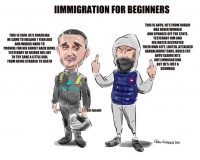
Title: On Varieties of Marginality: Hate, Class and Others in Modern Ireland "
-------------------------------------------------------------------------------------------------------------------------------------------------------------------
22nd October, 5.00pm in John Hume Boardroom
Professor Kathy Schultz
University of Colorado, Boulder

Title: Narratives of Dignity: An Inquity into what sustains Teachers in their Profession"
Drawing on narratives collected from more than 100 individuals and groups of veteran teachers in the US, in this talk I examine where teachers have found dignity in their work. These stories of small moments and larger structures provide a guide for re-imagining teaching as a more humanizing profession.
Professor Kathy Schultz is a professor and dean emerita of the School of Education at the University of Colorado Boulder. Her scholarly work has focused on the research, development, and dissemination of practices that support new and veteran teachers working with marginalized populations in high poverty areas. Her most recent book, Distrust and Educational Change: Overcoming Barriers to Just and Lasting Reform argues that pervasive distrust undermines the possibility for meaningful and enduring change in a range of educational contexts.
This seminar speaks to two of Education Department research themes, that of Education, culture and social justice and Professional studies
-------------------------------------------------------------------------------------------------------------------------------------------------------------------
12th November, 4.30pm in Anthropology Seminar Room
Paul McCallion
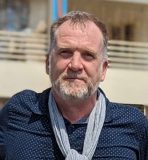
Title: "Displacement in the context of the climate crisis: An anthropological perspective on a present day quagmire"
In August 2017, due to armed attacks, massive-scale violence, and serious human rights violations, thousands of Rohingya were forced to flee their homes in Myanmar’s Rakhine State. The neighbouring nation of Bangladesh generously provided 5,521 acres of forest land to host 32 new refugee camps. Currently, 1 million Rohingya are displaced and sheltering in Bangladesh.
Bangladesh is approximately double the size of Ireland with a population of 170+ million. According to the 2023 World Risk Report – which indicates a nation’s climate vulnerability risk, while factoring in the complex interrelationship between climate crises, marginalized groups, global societies, global displacement and national resilience – Bangladesh is ranked 9th and Ireland 119th globally in terms of the risks they face due to the climate crisis. Needless to say, providing for displacement on this scale further complicates the risk picture. Stepping away from the manner in which this complex reality is represented in the daily global media stream, I will present an anthropological perspective on leading climate action teams and climate responses across development and humanitarian settings, including five years of climate project implementation by a UN agency in the context of the Bangladesh refugee response.
-------------------------------------------------------------------------------------------------------------------------------------------------------------------
26th November, 4.30pm in Anthropology Seminar Room
Dr Tatsuma Padoan,
Sensa Lab, University College Cork

Title: "Ritual as Enunciative Praxis: Some Reflections from Katsuragi, Japan"
Abstract:
This paper intends to introduce the semiotic concept of enunciation, showing its possible intersections with Michael Silverstein’s theory of ritual. I will explore these intersections through an analysis of ritual action, in a community of ascetic practice involved in the revival of the pilgrimage to the “Sutra Mounds of the Twenty-Eight Lodges of Katsuragi” (Katsuragi no nijūhasshuku kyōzuka), a mountain area in central Japan. Following these pilgrims, we will “walk” through different forms of ritualisation, from an informal “interaction ritual” to a highly metricalized “full-tilt ritual”, passing through examples of ritual apprenticeship involving improvisation and adjustment. I will argue that enunciation may offer an accurate framework to describe the metapragmatic dynamics through which social roles are performatively redefined via verbal and nonverbal semiotic acts. Finally, by looking at the way notions of personhood, subjectivity, sacred language, and the cosmos are conceptualised by members of the ascetic group, I will show how an impersonal and diagrammatic conception of enunciation better fits the idea of ritual remaking of the world enacted by these ascetic practitioners.
-------------------------------------------------------------------------------------------------------------------------------------------------------------------
3rd December 2024, 4.30pm, Anthropology Seminar Room, upstairs in Rowan House
Dr Magdalena Craciun
University of Bucharest
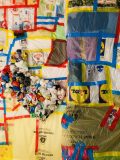
"Plastic in Romania: the conceptual plasticity of a material"
Abstract:
Pointing at the diversity of plastic materials and their affordances, forms, and trajectories, various studies have denaturalised the singularity of ‘plastic’ and institute the plurality of ‘plastics’. Yet, the plurality within singularity, namely, the different understandings of ‘plastic’, has been less approached. This presentation puts forward the claim that ‘plastic’ is not one concept, either. A conceptualisation of the notion of ‘plastic’ as a ‘regime of value’ premises this claim. Plastics are man-made materials that, from their invention, have had to be defined so that people can make sense of them and integrate them in their lives. Via ‘regime of value’, the notion of ‘plastic’ comes to the fore not so much as a discursive rendering of what this material is, but an invitation/instruction on how to value it. New understandings of ‘plastic’ keep being formulated. Via ‘regime of value’, the accumulation of notions of ‘plastic’ becomes evident as a matter of politics. Moreover, an ethnography of plastics in Romania substantiates this claim. In this society, several understandings of ‘plastic’ co-exist. ‘Plastic’ conjures up, variously, a disposable material, a recyclable material, a modern material, and a toxic material. People employ one or another instantiation of this concept in their everyday life, depending on experiences, circumstances, and agendas. The same person draws on one or another understanding in different moments and contexts. The concept gets pulled into the dynamics of social interaction and stance-taking, generating alliances and conflicts of all sorts (generational, classed, or geopolitical, including within the same person).
-------------------------------------------------------------------------------------------------------------------------------------------------------------------
10th December 2024, 4.30pm, Anthropology Seminar Room, upstairs in Rowan House
Dr Ian McGonigle, Department of Anthropology, Maynooth University

Title: "Settler-Indigeneity in the West Bank"
Abstract:
This lecture explores how indigeneity has become an identity and political resource within the context of Israeli settlements in the contested West Bank territories. It examines how Jewish settlers in the West Bank have mobilized the concept of indigeneity and fashioned themselves as natives to assert divine rights to the land, despite Palestinian claims of indigeneity as a colonized people. The lecture provides an overview of the ethnographies in the recently published volume “Settler-Indigeneity in the West Bank” and specifically discusses the religious and ideological motivations of the West Bank’s orthodox winemakers, many of whom see their vocation as a fulfilment of Biblical prophecies and the realization of the era of ge’ula, or redemption. The lecture problematizes simplistic conceptualizations of indigeneity as historical marginality and contributes to broader discourses in settler-colonial studies and anthropology on indigeneity and sovereignty in contested territories.
-------------------------------------------------------------------------------------------------------------------------------------------------------------------
11th February 2025, 4.30pm, Anthropology Seminar Room, upstairs in Rowan House
Dr Aleksandar Bošković, Institute of Archaeology, Belgrade (Serbia) & UFRN, Natal (Brazil)
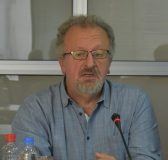
Title: History of anthropology as an anthropological problem
Abstract: Debates about anthropological research, as well as about individual anthropologists, are very much influenced by the attempts to understand the discipline’s history and different trajectories that led to its institutionalization in different cultures and different cultural and social contexts. At the same time, these attempts take place amid complex sociopolitical crises that lead to questioning of the dominant ideological narratives. As these attempted explanations appear in a specific (current) time, they are also placing the actors (anthropologists from the past) in the present – with some interesting consequences. Like any other segment of human life, anthropology is influenced by particular stories, and some of them will be examined in this presentation. A particular emphasis will be placed on the facts that place real anthropologists in their own time and place and contextualise their work. This should be helpful to understand some recent criticisms, but also to explain the importance of doing proper research in any area. Any attempt to formulate the definitive history of anthropology is doomed to fail, and any such attempt will say more about the person(s) trying to come up with it, than about the actual subject of our discipline.
-------------------------------------------------------------------------------------------------------------------------------------------------------------------
6th March 2025, 4.30pm, Anthropology Seminar Room, upstairs in Rowan House - RESCHEDULED TO A LATER DATE. WILL UPDATE WHEN WE HAVE MORE INFO.
Professor Brigittine French, Grinnel University
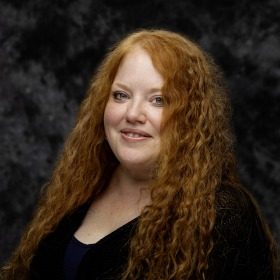
Title: How does a Survivor Speak? Enregistering the “Maya Peasant Voice” in Genocide Testimony
Abstract: This lecture offers an analysis of testimonies produced by formal collaborative efforts to collect and circulate Indigenous survivor narratives from the Guatemalan genocide and armed conflict (1954-1996). While such efforts are standard international practice for “post-conflict” transitional justice efforts, the results they produce are more complicated and power-laden than often recognized in the field of human rights (French 2009). I aim to show how genocide survivor narratives produced by Maya eye witnesses in conversation with researchers from outside communities are sites of profound linguistic, cultural, epistemological, and ontological conflict. These conflicts are manifested through the on-going process of enregistering (Agha 2007; Wirtz 2007) the historically constituted voice of the racialized “Indian peasant,” a long-standing persona who is imagined to be an illiterate, dominant speaker of a Mayan language whose command of Spanish is poor at best. At the same time, the double-voiced discourse of the “Maya peasant” simultaneously may enregister the voice of the Maya survivor from Indigenous communities in resistance. In so doing, this analysis challenges a putative universal logic that tacitly imposes as an exclusive Western logic of survivor narration and survivorship in service of truth and justice processes in contexts of state-sponsored violence.
-------------------------------------------------------------------------------------------------------------------------------------------------------------------
25th March 2025, 4.30pm, Corrib 1 Suite, Glenroyal Hotel
Professor Beth Rubin, Teachers College, Columbia University

The Departments of Anthropology and Education at Maynooth University invite you to this Interdepartmental Seminar Series in Anthropology & Education.
Title: It’s going to go beyond these walls”: Nurturing ecosystems of civic learning through youth participatory action research
Abstract: Professor Beth C. Rubin will illustrate and theorize a “critical ecosystems” view of civic learning as collectively produced, historically and structurally situated, & affective and relational. This expansive understanding of civic learning is rooted in findings from a social design project in which civic action research investigations conducted by youth in communities impacted by structural inequality catalyzed densely interwoven, affectively infused networks of cross-district interaction and action.
Beth C. Rubin is professor in the Teaching of Social Studies program in the Department of Arts and Humanities at Teachers College, Columbia University. In her work she explores how young people come to see themselves as citizens and as learners amid the nested contexts of classroom, school, community and society, with particular attention to how civic identity takes shape within local contexts marked by historical and contemporary inequalities. She also collaborates with educators to design and study curricular and pedagogical innovations that build upon this critical, sociocultural understanding of youth civic learning.
-------------------------------------------------------------------------------------------------------------------------------------------------------------------
8th April 2025, 4.30pm, Anthropology Seminar Room, upstairs in Rowan House
Associate Professor Laavanya Kathiravelu, University of Oslo
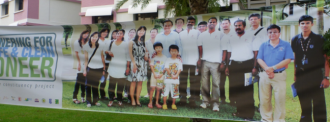
Title: The Migrant Race: Intra-Asian mobility, co-ethnicity & categorical complexity
Abstract: Asia hosts a quarter of all international migrants in the world. The majority of these people are ethnically Asian, with most mobilities intra-regional. Within this zone, global cities such as Singapore and Doha are some of the most desirable destinations, that promise economic opportunity and ethnic familiarity , as well as first world standards of living without having to encounter racist states and structural discrimination in North America and Europe. However, here too, the mobilities of both temporary and longer-term migrant communities are governed by exclusionary and carefully calibrated immigration regimes. They demarcate based on narrow notions of skill and value, but also classed, cultural and ancestral notions of who belongs. These systems are explicitly racialised, instituting permanent temporariness through strict maintenance of racial proportions within the population (Singapore) and citizenship through patrilineal descent (Qatar).
Despite these policies, race or skill alone does not guarantee belonging. Asians who fit within the Singapore states labels of ‘Chinese’ or ‘Indian’, and Arabs who have lived for generations in the Gulf cannot claim complete social and political membership – yet their labour and presence within the nation is a quotidian reality and even welcomed. Many of these communities have now lived for two or three generations within these relatively young postcolonial states without citizenship. They are a migrant ‘race’, who are displaced not just based on immigration status, but through a discursive intersectionality of ethnoraciality, tribe, class, culture, country of birth, length of stay, level of education and “skill”. In exploring these complexities, this project interrogates how Asian migration studies can contribute to complexifying intersectional approaches to identity and belonging in the social sciences. In doing so, it aims to disrupt the binaries of migrant/local and White/non-white, and suggest conceptualizations of continuums that are grounded in empirical realities of the “margins”.
-------------------------------------------------------------------------------------------------------------------------------------------------------------------
15th April 2025, 4.30pm, Anthropology Seminar Room, upstairs in Rowan House
Associate Professor Mallika Shakya, South Asian University, Delhi/FAU Erlangen-Nuremberg
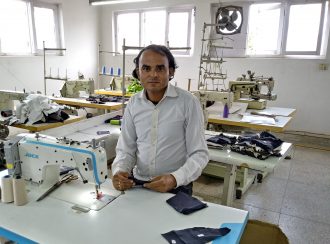
Title: Labour Migration and the Reproduction of Social Class in Nepal
Abstract: This paper offers an anthropologically nuanced account of the transformation of industrial class which draws on my long-term fieldwork in the readymade garment industry in Nepal. It integrates the economic history perspective into shopfloor ethnography to probe ethnicity and state-restructuring. Two decades after the Maoist civil war in the remote Himalayas and three decades after the end of the global cold war, the size, scope and nature of both capitalism and state has undergone vast changes in Nepal, and so has the positionalities of various cultural groups in whose name the Maoist civil war was partially waged. Through the lives and work of two ageing garment businessmen, this paper problematizes the Nepali industrial mesocosm while probing the transfer of social capital within the context of (post)revolutionary state-restructuring and (post)liberal cosmpolitanism. This paper underlines how class, culture and nationality are not distinct and separate entities but rather the relational spheres of human relations which can best be examined through methods that recognize the multi-site and multi-temporal intersections between the local and the global.
Mallika Shakya, currently a Guest Professor in FAU Erlangen-Nurnberg, is an Associate Professor in the Department of Sociology at South Asian University Delhi. Trained in LSE, University of Oxford and University of Glasgow, she works on three distinct themes: (i) social embedding of industrialisation and labour movements, (ii) everyday life on the Nepal-India border towns, and (iii) poetic imaginations of nation and region in South Asia. Her book “Death of an Industry: The Cultural Politics of Garment Manufacturing during the Maoist Revolution in Nepal” was published by Cambridge University Press in 2018 and is listed as one of the 100 all-time-classics on Nepal. Her writings have been published in leading academic journals focusing on economic anthropology and South Asian studies.
She currently serves as the Editor-In-Charge of Society and Culture in South Asia (SCSA) and is also part of the editorial committees of Dialectical Anthropology (DA), European Bulletin of Himalayan Research (EBHR) and the Human Economy book series (Berghahn Books). She pursues interdisciplinary research methods and has been collaborating with poets and fiction- writers, film-makers and artists, and medical professionals especially in her research on the borders within South Asia. Her ongoing collaborative research project with Aarhus University examines the health behaviour among the migrant workers on Nepal-India border towns.
-------------------------------------------------------------------------------------------------------------------------------------------------------------------
29th April 2025, 4.30pm, Anthropology Seminar Room, upstairs in Rowan House
Associate Professor Pauline Guedj, Université Louis Lumière Lyon
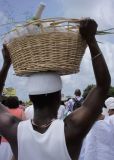
Title: Black studies, Black nationalism and spirituality in the US (1960-2010
Abstract: Focusing on the trajectories and careers of two African American scholars, John Henrik Clarke and Maulana Karenga, this presentation will study the connections between Black cultural nationalism, Black studies and religions in the United States. We will reflect on Karenga and Clarke’s use of the concept of spirituality and understand how their writings as academic are used and studied by practitioners of African-based religions in the United States whose attitude toward religion lies on a constant negotiation with their African past and cultural heritage.
Pauline Guedj is assistant professor of anthropology at the Université Lumière Lyon 2 and a member of the LADEC. Her first research interests dealt with the history of Black nationalism, African and African American religions in the United States and in Ghana. She published a book (Le Chemin du sankofa, L’Harmattan – Connaissances de hommes, 2011) as well as many articles on the topic. She also edited various special issues of journals on African American music, Black studies and Afrocentricity.
Pauline Guedj’s most recent research focuses on the trajectories of different artists who develop in their work and methods a specific relationship to social sciences and anthropology. She is the author of Louis Malle. Regards sur l’Amérique (Ovadia, 2021) a detailed study of Louis Malle’s American films, of Steven Soderbergh. Anatomie des fluides (Playlist Society, 2022), an anthropological analysis of the director’s films and of Beck. Des palmiers dans l’espace (Playlist society, forthcoming), an analysis of the musician’s connections to the city of Los Angeles, its fabric, and its social dynamics.
Pauline Guedj is a regular contributor to various magazines, including Politis and France-Amérique. As a journalist, she writes on cinema, literature, and music.
-------------------------------------------------------------------------------------------------------------------------------------------------------------------
6th May 2025, 4.30pm, JHLT7, John Hume Building
Professor Joel Robbins, Cambridge University

Title: The Present and the Future in the Present: Religion, Values, and Climate Change
Introductory comments by Prof Rachel Msetfi, Vice President Research and Innovation, Maynooth University
Abstract: Many people have come to the conclusion that simply sharing the scientific data on global warming with the public has not been enough to motivate the kind of consistent action that would be needed to successfully address the threat it presents. In this lecture I consider whether religion might have some unique role to play in bringing such action about. At the core of my argument are the claims that religions often transform everyday understandings of temporality and that notions of temporality in turn profoundly shape the way people approach realizing the values they hold, including those related to climate change. In light of these claims, I suggest that religion can play a role in fostering climate action that many other institutions have not been able to play successfully. Throughout the lecture, I draw on work in the anthropology of religion and time, one the one hand, and in the philosophy of values, on the other, to build my argument.
Joel Robbins is Sigrid Rausing Professor of Social Anthropology at the University of Cambridge. His work focuses on the anthropology of Christianity and religion more broadly, values and ethics, and cultural change. Robbins is the author of the award-winning book Becoming Sinners: Christianity and Moral Torment in a Papua New Guinea Society and of the book Theology and the Anthropology of Christian Life. He was for over a decade co-editor of the journal Anthropological Theory. He is currently working on a book on social theory and the study of values.
